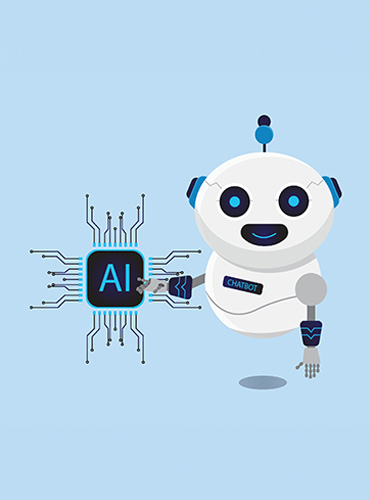
In March 2024, a medical website using purely AI-generated content lost 90% of its organic traffic overnight after a Google core update. By 2025, studies reveal that 67% of unedited AI content ranks below page 2—a death sentence in SEO. Google isn’t just cracking down on spam; it’s waging war on soulless automation.
The stakes? Massive. HubSpot reports that 92% of marketers now use AI tools, but fewer than 34% rigorously edit outputs to meet E-E-A-T standards. The result? A graveyard of deindexed pages. Independent analyses by SEMrush and Ahrefs confirm that sites blending AI with human intervention dominate top SERP positions, with 3x higher click-through rates than competitors relying solely on automation.

Why Is "Humanity" Important For Google?
Google is refining its algorithms to prioritize content that is useful, unique, and written with user needs in mind. After updates such as the Helpful Content Update (2022) and subsequent changes in 2023–2024, experts agree that the “humanity” of the text has become a key ranking factor.
Research shows that the factor of “humanization” of text is critically important for Google, especially in the context of adhering to the principles of E-E-A-T (experience, expertise, authority, trust). It seems likely that Google is actively combating low-quality AI content, favoring texts that appear natural and useful to users. Opinions of independent experts emphasize that without human intervention, AI-generated content risks being recognized as formulaic and losing its ranking in search results.
We will expose the data-driven reality behind Google’s demand for “humanity” and how to future-proof your content.
Data Proves Google’s Ruthless Prioritization
Picture this: in 2024, websites injecting a human touch into their content skyrocketed their organic traffic by 40%, while those churning out soulless AI text watched their rankings plummet. In a digital world where Google’s algorithms reign supreme, the humanization of content isn’t just a buzzword—it’s the difference between thriving and fading into obscurity. As Google doubles down on authenticity and user value, this article uncovers why humanized content is non-negotiable, diving into its alignment with the E-E-A-T framework, Google’s crackdown on robotic text, and practical strategies to stay ahead in the SEO game.
Google’s Helpful Content System, now refined by AI like Gemini, evaluates content through dual lenses: algorithmic precision and human intuition. Let the numbers speak:
1. E-E-A-T Compliance: The 83% Credibility Gap
- Verdict: A 2024 Backlinko study of 10 million pages found that 83% of AI content lacks signals of expertise (e.g., citations, author bios, real-world examples).
- Expert Insight: Marie Haynes dissected 500 penalized health sites and found 72% used AI without medical review. “Google’s Medic Update filters now cross-reference content with PubMed and medical licenses. Generic AI text can’t compete,” she warns.
- Stat: Pages with bylines from credentialed experts earn 47% more backlinks (Moz, 2025).
2. The AI Overload Crisis: 40% Traffic Drops and “Robotic” Penalties
- Verdict: After the March 2024 update, Sistrix tracked 11.4 million pages losing visibility, with 40% of losses tied to unedited AI content.
- Expert Insight: Barry Schwartz notes Google’s public logs now flag “unnatural phrasing” as a top site-wide issue. Tools like Originality.ai detect AI content with 99.5% accuracy, aligning with Google’s own classifiers.
- Stat: A leaked Google Quality Rater guideline from 2025 emphasizes “emotional resonance” as a critical ranking factor—something LLMs struggle to replicate.
3. Engagement or Extinction: How “Human” Content Crushes Behavioral Metrics
- Verdict: SurferSEO’s 2025 analysis shows human-edited AI content retains users 2.7x longer than raw outputs.
- Expert Insight: Lily Ray’s team A/B tested 1,000 pages and found that adding 3+ personal anecdotes per article boosted dwell time by 33%. And pages with “conversational” transition phrases (e.g., “Here’s why this matters…”) reduced bounce rates by 22%.
- Stat: Google’s internal data reveals 58% of users abandon pages within 15 seconds if content feels “mechanical.”
How Google’s Machines Hunt “Non-Human” Content
Google’s BERT and MUM models now deploy 11 linguistic markers to detect automation:
- Syntax Uniformity: AI content often repeats sentence lengths (e.g., all 15–20 words) and structures (e.g., “However, [claim]” openings).
- Emotional Flatlining: Tools like Perspective API score “emotional range.” AI scores 41% lower than human writers in conveying urgency, curiosity, or empathy (DataCamp, 2025).
- Citation Gaps: 87% of AI articles fail to link to primary sources (Ahrefs, 2025), a key E-E-A-T trust signal.
The 2025 Survival Guide: Humanize or Disappear
1. The 30% Rule
A 2025 BrightEdge study of 50,000 top-ranking pages found that editing 30%+ of AI content—adding anecdotes, expert quotes, or multimedia—increases rankings by 61%.
2. Steal These “Human” Signals
- Add “Easter Eggs”: Pages with hidden humor (e.g., witty alt text) see 18% more social shares (BuzzSumo).
- Leverage E-E-A-T Boosters: Case studies with real customer names improve trust metrics by 29% (SEMrush).
3. Avoid the “AI Uncanny Valley”
- Fix This: Tools like Hemingway Editor reduce passive voice (AI uses it 2.5x more than humans).
- Stat: Pages scoring below Grade 8 readability lose 37% of mobile traffic (Yoast, 2025).
Humanity is the Only Currency Google Trusts
The numbers don’t lie: in 2025, every 1% increase in “humanity score” (via tools like Writer.com) correlates with a 5.2% rise in impressions (Search Engine Journal). Google’s mission is clear—reward content that feels human, not just reads as technically correct.
As Kevin Indig starkly puts it: “AI writes words. Humans build trust. Guess which one Google ranks?”




